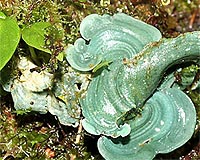| . |  |
. |
Bogota (AFP) March 24, 2010 Health officials in Latin America report an earlier than usual outbreak of potentially deadly dengue fever, and are bracing this year for a particularly virulent outbreak of the mosquito-borne tropical disease. The Pan-American Health Organization (PAHO) said so far it has logged some 146,000 cases in the first three months of the year, of which 79 have been fatal. This time last year there were some 79,000 cases of dengue reported, with 26 deaths. Health authorities already have declared epidemics in some Central American and Caribbean countries, and say the spread of the disease has been aided by climate changes. "The year 2010 will be complicated, notably because of climactic factors like the El Nino phenomenon," said Romeo Montoya, part of a team of doctors who track the Aedes aegypti mosquito which transmits the disease. Dengue fever symptoms include high temperatures and muscle aches. In extreme cases, hemorrhaging and death can follow. There is no known vaccine, but officials said they are in the process of developing one, and hope to have it ready in about five years. According to the PAHO, the countries likely to be hardest hit by this year's outbreak are Brazil, Colombia and Venezuela. In Brazil, the number of dengue cases was up by 109 percent over last year, with 21 deaths. In Colombia, 22 people have died, or around 28,000 stricken with the illness. In Venezuela meanwhile, there have been 16,000 cases so far, said health officials who said the number of cases appears to be rising year after year. "We have a (level of ) epidemic that never before existed during normal seasons," said Violeta Menjivar, the deputy health minister in El Salvador, where last month the government declared a national state of emergency for dengue. "The entire Central American region is affected." Global warming has allowed the mosquitoes, and hence dengue fever, to spread to areas where the disease had not previously been known. Drought conditions in some areas also have worsened the outbreak because people have stored water in and near their living areas, creating breeding grounds for mosquitoes that harbor the virus. Officials have ramped up eradication efforts including eliminating mosquito breeding grounds and undertaking extensive fumigation in affected areas.
Share This Article With Planet Earth
Related Links Epidemics on Earth - Bird Flu, HIV/AIDS, Ebola
 Fungi Can Change Quickly And Pass Along Infectious Ability
Fungi Can Change Quickly And Pass Along Infectious AbilityCorvallis OR (SPX) Mar 24, 2010 Fungi have significant potential for "horizontal" gene transfer, a new study has shown, similar to the mechanisms that allow bacteria to evolve so quickly, become resistant to antibiotics and cause other serious problems. This discovery, to be published Thursday in the journal Nature, suggests that fungi have the capacity to rapidly change the make-up of their genomes and become infectious ... read more |
|
| The content herein, unless otherwise known to be public domain, are Copyright 1995-2010 - SpaceDaily. AFP and UPI Wire Stories are copyright Agence France-Presse and United Press International. ESA Portal Reports are copyright European Space Agency. All NASA sourced material is public domain. Additional copyrights may apply in whole or part to other bona fide parties. Advertising does not imply endorsement,agreement or approval of any opinions, statements or information provided by SpaceDaily on any Web page published or hosted by SpaceDaily. Privacy Statement |